SUMMARY
This is AI generated summarization, which may have errors. For context, always refer to the full article.
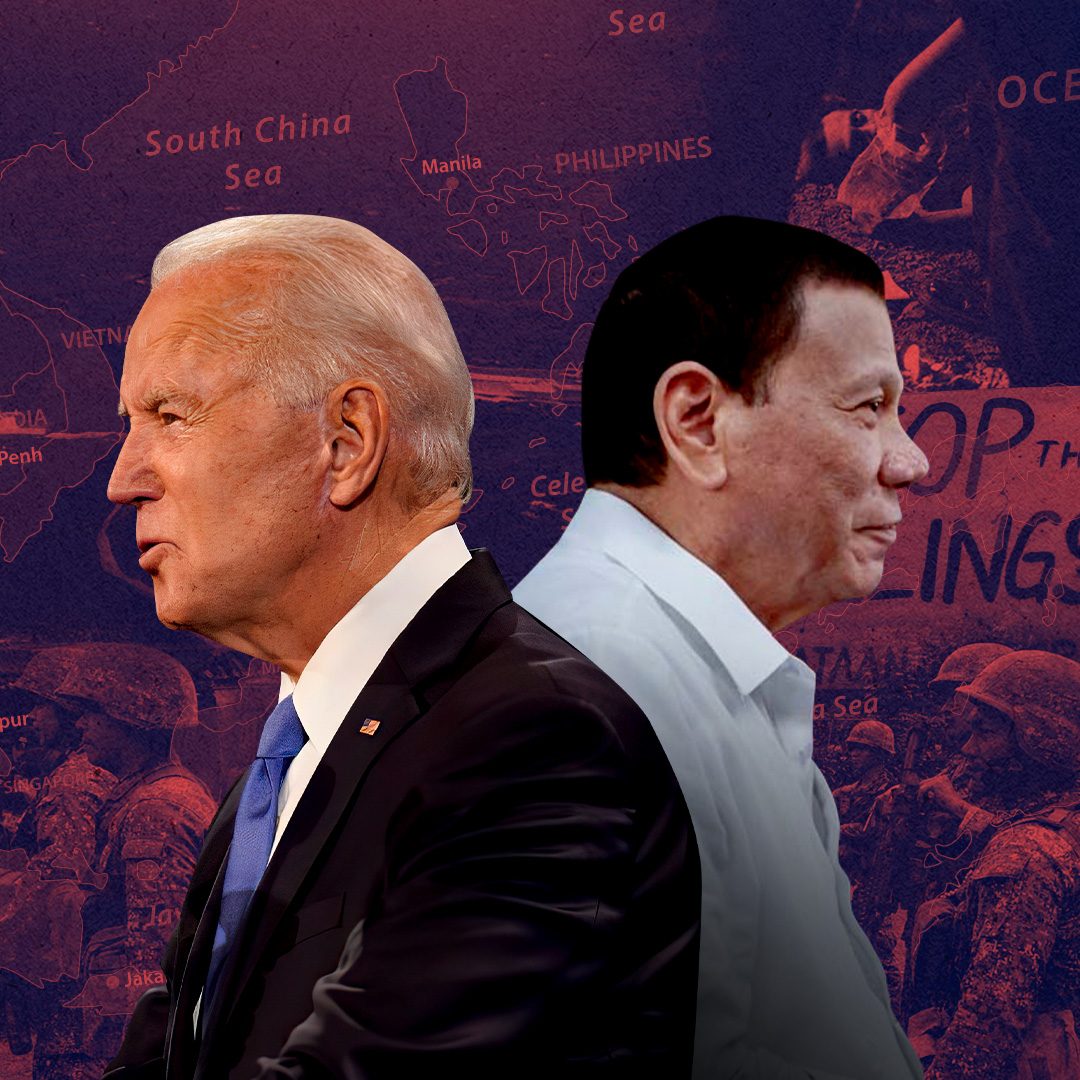
On a cold Washington day, it would have looked like any another ceremony the United States has held for decades. Flags were hoisted on pillars of the Capitol, while the most powerful leaders of one of the most powerful nations in the world gathered to usher in a new administration.
Except that the inauguration of US President Joe Biden and Vice President Kamala Harris was in many ways, no ordinary occasion.
As the two new leaders stepped out onto the Capitol balcony for their historic oath-taking, outgoing US president Donald Trump departed the White House for the last time on January 20.
Walking toward a chopper stationed on the South Lawn, the world watched Trump leave the corridors of power with little to say on the last hours of his tumultuous presidency.
Across the Pacific, close to midnight in the Philippines for President Rodrigo Duterte, the firebrand leader bid goodbye to the American president he once belted out in song for.
Malacañang spokesman Harry Roque later said Duterte extended his best wishes to Biden, former vice president of Barack Obama, whom Duterte had once cursed at to “go to hell” for expressing concern over human rights abuses in his drug war.
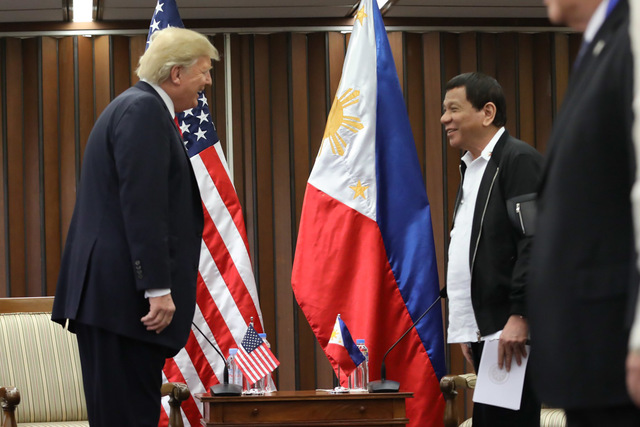
Unlike a phone call to personally congratulate Trump, Duterte sent a congratulatory letter to Biden about a week after his election, Philippine Ambassador to the US Jose Manuel “Babe” Romualdez said in a recent interview with CNN Philippines.
In the letter, Romualdez said Duterte mentioned that he looked forward to continuing ties between the Philippines and the US. While the message was to be expected, it came in contrast to the “very engaging, animated” conversation Duterte had with Trump for the occasion 4 years ago.
It’s in this context that foreign relations observers were curious about what Philippine-US relations could look like under a new Biden administration.
While touchy issues for Duterte such as human rights were expected to cause friction, several experts expressed optimism over the prospect of strengthened ties between the two nations.
But forging ahead would depend on both Biden and Duterte seizing opportunities now present under a new chapter in relations, and equally important, balancing ties with neighboring China.
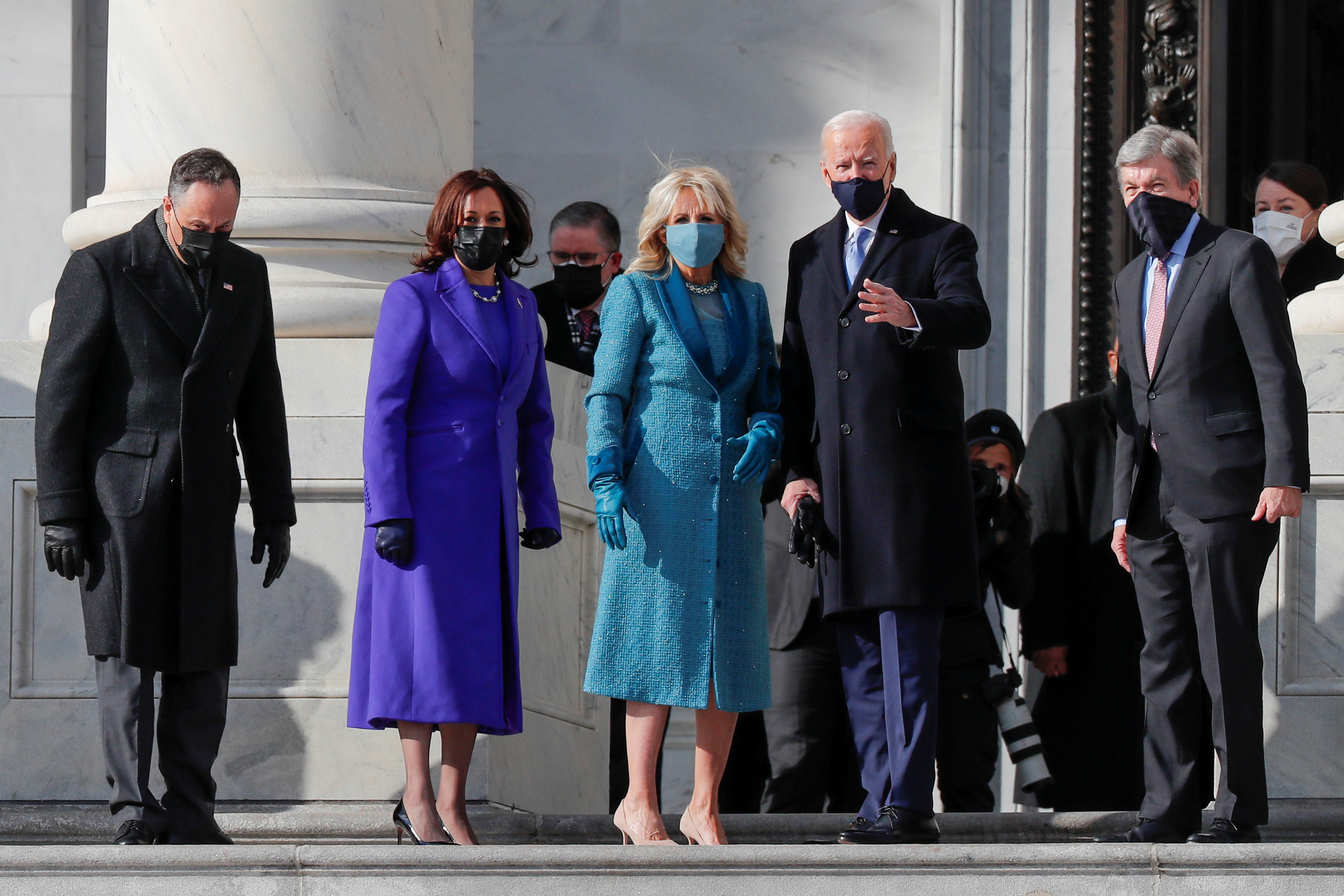
Deep ties
Unique to the Philippines’ relationship with the US, the two allies have developed century-old ties that have served as a solid foundation to weather different administrations.
On the US’ Election Day, US embassy Chargé d’Affaires John Law acknowledged this, expressing confidence that ties between Manila and Washington “will only grow and flourish for many years to come.”
“To the US, the Philippines is more than an ally, it is more than an economic partner. The Philippine people are our friends – and that friendship goes back over a century,” Law said.
These deep ties often touted by diplomats have translated to extensive immigration among Filipinos and Americans, as well as billions in humanitarian assistance extended over previous years, including over P1.1 billion for COVID-19 alone. More than that, decades of close relations have also elicited high trust ratings among Filipinos for the US, its former colonial ruler.
“Those relationship, shared sacrifices, shared sense of values, and adherence to democracy – I think those are basics and it’s been difficult to get away from those basics,” former Philippine ambassador to Washington Raul Rabe said in a recent interview with Rappler.
Among the most potent displays of these historic ties were several military pacts between the US and Philippines, its oldest treaty ally in Asia.
Despite being viewed by some of his top officials as a cornerstone of Philippine security, Duterte hit one of these pacts when deciding to terminate the Visiting Forces Agreement (VFA) last February 2020, only to later suspend its abrogation until August 2021.
While Duterte’s actions have put the military deal in limbo, experts now point to it as one of the foremost opportunities for Joe Biden in the region.
Rabe noted how the VFA suits Biden’s strategy to maintain alliances and shore up its defense strategy abroad. To the Philippines, the VFA would serve as a counterweight to China’s aggressive behavior in the South China Sea while providing an avenue to strengthen its military, one of the weakest in Asia.
“The current uncertainty over the continued existence of these agreements creates an opportunity for the Philippines to play a role in the rising crisis between the United States and China while we pursue our strategic interests,” Rabe said.
Rabe, who served as ambassador to the US under the Ramos administration, was involved in negotiations with US officials after the Philippines decided not to renew the Military Bases Agreement in 1991. The VFA, which took effect in 1999 provides legal cover for the presence of US troops in Philippine territory and facilitates their entry for large-scale training and exercises.
“The Philippines is now a ‘frontline’ state in the region with our military alliance with the United States, while we shift our strategy towards China from adversarial to cooperative…. With astute management of our interactions with the two Superpowers, we can be ‘friends’ with both, while we maintain our alliance with the United States which we badly need while we develop our own defense capabilities,” Rabe said.
He stressed that flexibility on the part of Philippine diplomats – while being grounded in the history of the Philippines and US ties – would be necessary in advancing Filipinos’ interests during the fluid situation.
“At no greater time than this do we need flexibility,” he said. “Flexibility is a must.”
Essential for PH, regional security
Southeast Asia analyst Greg Poling of the Center of Strategic and International Studies (CSIS) in Washington echoed this in a recent interview with Rappler, describing the VFA as “vital” to both US and Philippine interests, especially in the South China Sea.
Poling, along with CSIS for Asia and Japan Chair Michael Green, wrote in a recent analysis that the one of the first actions the US could take would be to push VFA negotiations forward. In particular, the US could propose the creation of a working group to negotiate certain addendums on criminal jurisdiction, they said.
After the Philippines first suspended the VFA’s termination in June, Philippine Foreign Secretary Teodoro Locsin Jr said that “mainly jurisdictional” issues need to be discussed, in the case of offenses by American military.
But while the VFA will be critical, experts emphasized that equally important would be seeing progress in the implementation of the Enhanced Defense Cooperation Agreement (EDCA) between the two countries. The EDCA, negotiated during the Obama administration, allows the US military to construct facilities and preposition defense assets inside Philippine military bases.
“Without the VFA and EDCA, our plans for deterring Chinese aggression in the region will be hampered,” Poling and Green said.
Filipino and American officials have recognized how vital both the VFA and EDCA are to the two countries.
For one, Locsin cited the security provided by the military deal in the South China Sea when he announced last November 11 that the Philippines would extend the life of the VFA for a second time.
Later that month, the official visit of Trump’s national security adviser Robert O’Brien to the Philippines saw the US official requesting that the VFA be kept alive. He said it was something America would “obviously like to see longer.”
Poling and Green underscored the urgency posed by China’s aggressive behavior in tackling the VFA and EDCA, citing the two agreements as vital in upholding the Philippines-US Mutual Defense Treaty (MDT).
The nearly 70-year-old MDT – which has both sides committing to defend one another in case of an attack – gained renewed sway after former US State secretary Mike Pompeo made it clear the defense pact covered the South China Sea.
Without an effective VFA and EDCA, the US’ reassurance to the Philippines “could prove a dangerous bluff,” the two analysts said, since the nearest US military forces capable of responding to an attack were located over 1,00 nautical miles away in Okinawa and Guam.
“That raises questions about whether our defense commitment is hollow, which in turn weakens deterrence and increases the likelihood of China using force,” they said.
In upholding the MDT, officials would be mindful to ensure the agreement would be effective as Locsin earlier said he would explicitly invoke the military pact in response to China’s posturing in the disputed waters. (READ: Locsin: If China attacks PH navy, I’ll call US).
Biden could see an opportunity to improve this, learning from lapses in the South China Sea seen under the Obama administration.
Locsin, who expressed fondness for working with Pompeo, often cited the US “fault” in the 2012 Scarborough Shoal standoff, where China seized the resource-rich feature. The incident had been a catalyst in the Philippines’ decision to file its historic case against China at The Hague.
Poling said while each side had their share of responsibility in the incident, “we shouldn’t lose sight of the fact that Beijing as the aggressor deserves most of the blame.”
“Both sides learned from that incident that Beijing will seize on opportunities to advance its claims and will try to pick at the seams in the alliance,” he said.
Poling said the Philippines, along with other Southeast Asian states, can expect Biden to continue the US’ assertive stand on the South China Sea seen under the Trump administration, where officials branded most of China’s claims in the waterway as illegal.
But where a Trump administration paid little attention to the South China Sea until its last year, Poling said “a Biden administration will…be much better positioned to build a coalition to impose cost on Beijing, and will hopefully be less risk-averse than the Obama team was.”
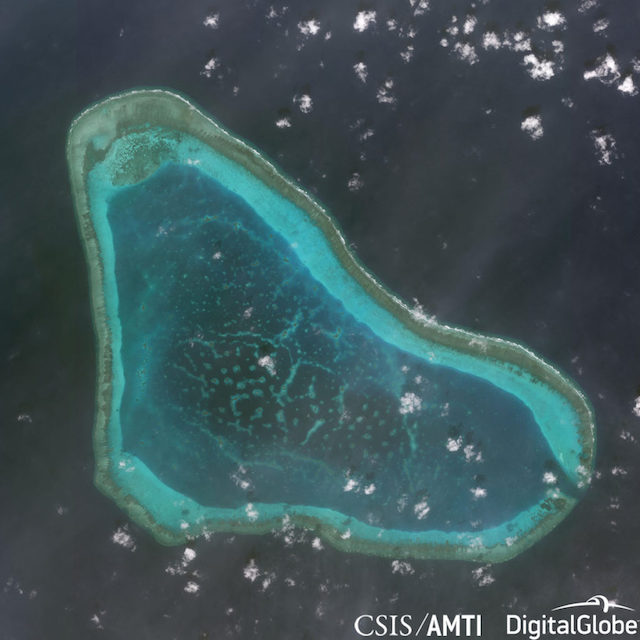
Deterring China
For Rabe, this is where diplomats can make the most of the Philippines’ current position in the region. Calculated or not, the former official said Duterte’s actions have landed the country in a more strategic position between the US and China’s rivalry.
“It was largely serendipity that the Philippines arrived at our current situation. This may be a point of disagreement but we should look at the opportunity it provides rather than belabor it,” he said.
Among these opportunities, Rabe said, is seeing the oil and gas deal between Beijing and Manila come to fruition. West Philippine Sea experts, such as former Supreme Court justice Antonio Carpio, have pointed out that the countries’ framework for oil and gas exploration could serve as a “solution” to the South China Sea dispute when – and if – it is finalized.
“We can be a contributor to regional security if we are able to develop formulas in which we can benefit from our Chinese relationship. We have our own territorial dispute with China but we are showing the way to manage the relationship,” Rabe said.
The former diplomat pointed out that maintaining friendly relations with both the US and China could likewise give way to an opportunity for the Philippines to be a “bridge” between the two Superpowers.
“The Philippines should keep an open mind and a nimble foreign policy to avail of the opportunities, now available under the Biden administration and a China that is now the dominant economy in our region and soon the largest economy in the world,” he added.
Playing such a role would likewise be important among the Association of Southeast Asian Nations (ASEAN).
After all, Biden had touted rebuilding strong alliances as “the most effective way” to meet challenges posed by China’s aggressive behavior, as well other threats in the region.
For ASEAN and the Philippines, Carpio earlier spelled out several ways countries could work together to deter Chinese intimidation, specifically in the South China Sea. This included rallying support behind the Philippines’ 2016 arbitral award, which has slowly gained ground among different countries’ legal positions in the waterway.
As for the US, Malcolm Cook, a Southeast Asia analyst with the ISEAS-Yusof Ishak Institute in Singapore, said Biden may want to use ASEAN summits as a platform for leadership in areas like climate change and the South China Sea dispute.
“Trump largely ignored ASEAN and the East Asia Summit. Biden likely will not,” he said.
Unlike Trump, Poling said that Biden would also understand that ASEAN institutions were “the only real game in town when it comes to security and diplomatic architecture in the region, and so will invest in them accordingly.”
Bower Group Asia president and CEO Ernest Bower earlier said this would take shape in Biden’s key appointments of highly competent career officials to focus on the region.
So far, this has held true in the recent designation of former US ambassador to the Philippines Sung Kim as acting assistant secretary for the US State Department’s Bureau for East Asian and Pacific Affairs, as well as Biden’s naming of Kurt Campbell as his administration’s “Indo-Pacific coordinator.”
Campbell, who held the same position as Kim in the State department, has been touted as the “most important architect” of Democrats’ Asia policy and is known to have led Obama’s “pivot to Asia” strategy.
Essential balance
But while Biden’s presidency may usher in new opportunities for the region, the Philippines and US were expected to face challenges in bilateral ties – foremost of which is the deteriorating state of human rights in the Philippines.
Biden has made it clear that part of the agenda of his first year in office is bringing leaders of democracies together and “honestly confront nations that are backsliding.”
While it may put a strain on ties with Manila, Southeast Asia security expert Zachary Abuza emphasized it was important for the US to remind countries that “values matter.”
“It’s important that the United States is trying to remind countries, and more importantly the citizens of those countries, the difference between what a US-led world order looks like versus a Chinese-led world order,” he said.
On the flipside, Poling said Biden’s move to address the shrinking space for dissent and human rights in the Philippines under Duterte could also be a “net positive” for the alliance, considering that Duterte detested moves of US lawmakers to publicly criticize his drug war.
“They mostly did so because they viewed the Trump administration as unwilling to speak up. If Biden can convince the Congress that he will raise human rights concerns forcefully but more discreetly with Duterte, that could prevent lawmakers from feeling the need to do so in public,” he said.
Either way, Rabe said the US would have to strike a balance, similar to how it has handled human rights issues in the Middle East. A Biden administration with “greater capacity for dialogue and compromise,” he said, would be beneficial for the US and its security interests.
“Recent events in the United States have shown that democracy is a fragile system. Even Biden has accepted this reality in the face of the persisting racial animosities and the growing inequality of wealth distribution in his country,” Rabe said.
“And if democracy is fragile in the United States, more so in the developing world,” he added.
Challenge for the Philippines
While the possibility of strengthening ties seems more evident under the new US president, experts stressed that opportunities would only mean so much if the Philippines’ position remained dependent on Duterte’s whims.
“There isn’t much Biden can do unless Duterte and his successor decide the alliance is worth preserving,” Poling said.
Abuza said that while Duterte officials have recently expressed the need for a US presence in the region,“it’s still very inconsistent because at the end of the day we know where he (Duterte) stands on China.”
In this case, Rabe said it would do well for the Philippines to work with US and Chinese officials to place relations on stable ground, beyond passing administrations.
“It is not a zero-sum game. We should not abandon our foundation of relations with the United States, but we should utilize that to enable us to interact with China in a beneficial way,” he said. – Rappler.com
Add a comment
How does this make you feel?
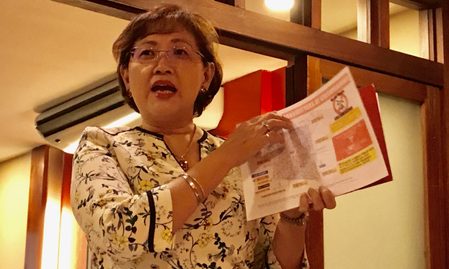
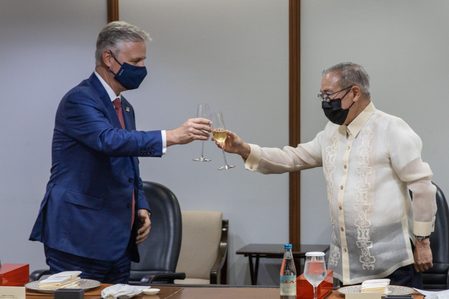
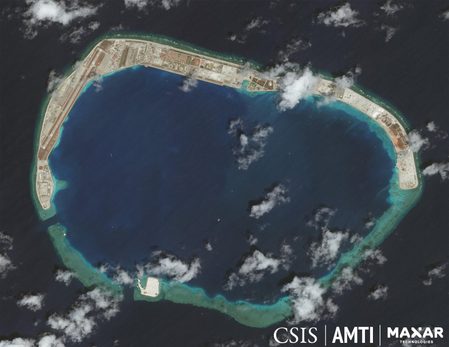
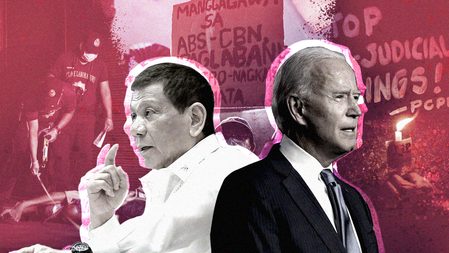
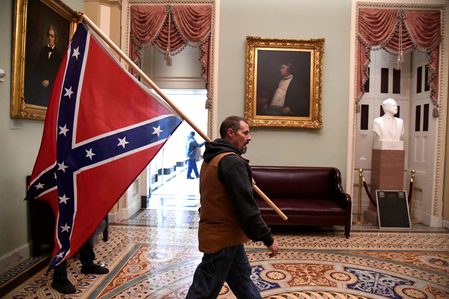
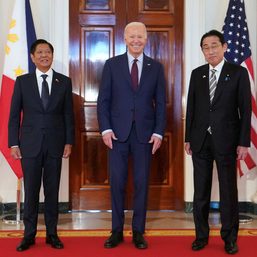
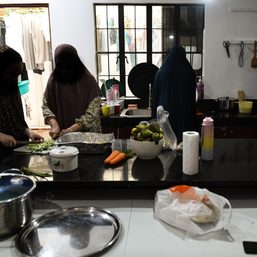
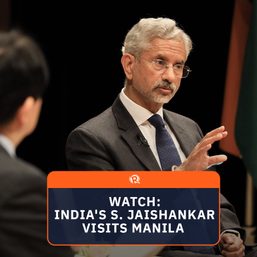
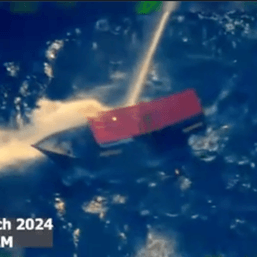
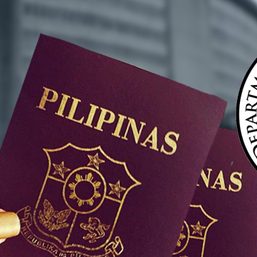
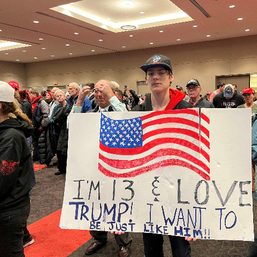
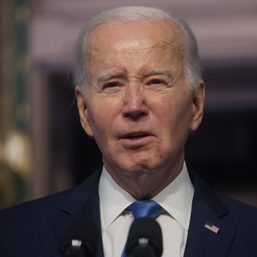
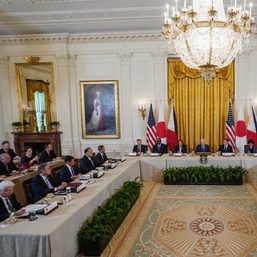
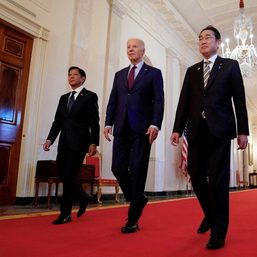
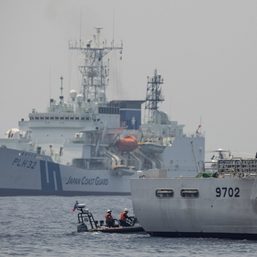

![[The Slingshot] Alden Delvo’s birthday](https://www.rappler.com/tachyon/2024/04/tl-alden-delvo-birthday.jpg?resize=257%2C257&crop=263px%2C0px%2C720px%2C720px)
![[EDITORIAL] Ang low-intensity warfare ni Marcos kung saan attack dog na ang First Lady](https://www.rappler.com/tachyon/2024/04/animated-liza-marcos-sara-duterte-feud-carousel.jpg?resize=257%2C257&crop=294px%2C0px%2C720px%2C720px)
![[Newsstand] Duterte vs Marcos: A rift impossible to bridge, a wound impossible to heal](https://www.rappler.com/tachyon/2024/04/duterte-marcos-rift-apr-20-2024.jpg?resize=257%2C257&crop=278px%2C0px%2C720px%2C720px)

There are no comments yet. Add your comment to start the conversation.